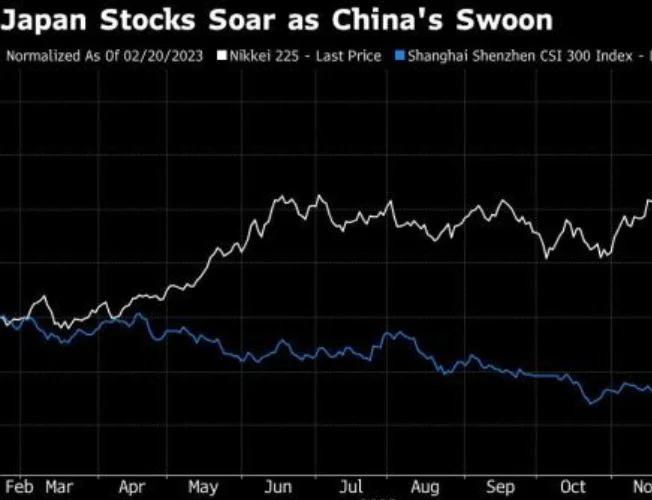Japan’s core inflation rate, a key measure excluding fresh food, exceeded expectations in January, reaching 2% year-on-year. This bolstered speculation that the Bank of Japan (BOJ) might finally abandon its negative interest rate policy in the coming months.
Inflation Tops Forecasts, Supporting BOJ Policy Shift
The January inflation data, released by the internal affairs ministry, showed consumer prices exceeding the consensus estimate of 1.9%. This marks the 22nd consecutive month where inflation has met or surpassed the BOJ’s target of 2%. Additionally, core inflation, which excludes both fresh food and energy prices, rose to 3.5%, exceeding the projected 3.3% and highlighting underlying price trends.
The news triggered a surge in bond yields, particularly the two-year note, which reached its highest level since 2011. Analysts attributed this to increased speculation that the BOJ might end its negative rate policy as early as March.
“The report strengthens speculation that the BOJ will conclude its negative-rate policy as early as March and is acting as a catalyst for bond sales,” said Kazuya Fujiwara, a fixed-income strategist at Mitsubishi UFJ Morgan Stanley Securities Co. in Tokyo. He further emphasized that the January CPI report underscores persistent inflationary pressures.
Market Reactions and BOJ’s Stance
The higher-than-expected inflation data fueled market expectations of the BOJ raising interest rates for the first time since 2007. A majority of central bank watchers anticipate this move to occur by April. This anticipation led to further gains in Japanese bank shares, reflecting the prospect of increased profitability.
The yen also saw a slight strengthening following the inflation figures. Overnight-indexed swaps now indicate a higher certainty of the BOJ abolishing its subzero rate policy by June.
“Today’s data supports the BOJ’s normalization plans in the coming months,” said Koya Miyamae, a senior economist at SMBC Nikko Securities. He further stated that the bank is nearing its inflation target and commended its resilience in staying above 2% despite certain temporary factors.
Governor Kazuo Ueda expressed confidence in achieving inflation above 2% and predicted a positive economic cycle fueled by rising prices, wages, and employment.
Factors Influencing Inflation and Future Outlook
One of the main contributors to exceeding inflation forecasts was a significant rise (63%) in the price of foreign travel packages. While the weakened yen attracts tourists to Japan, it also increases travel expenses for Japanese citizens venturing abroad.
Economists expect inflation to rebound in February as the impact of government price relief measures fades from year-on-year comparisons. These measures had the effect of lowering overall inflation by roughly 1 percentage point when initially introduced last year.
A median estimate from 25 economists surveyed by Bloomberg suggests that core inflation will likely average 2.4% in the first and second quarters of 2024. Additionally, Miyamae predicts the core rate to surpass 2.5% in February.
Challenges and Considerations for the BOJ
While the BOJ might welcome the news of rising inflation, it still faces challenges before implementing a rate hike. The Japanese economy slipped into a technical recession at the end of 2023 due to reduced spending by consumers and businesses.
Wage growth continues to lag behind inflation, putting pressure on household budgets. This, in part, explains the recent decline in Prime Minister Fumio Kishida’s approval ratings.
The yen trading near multi-decade lows against the dollar could further exacerbate import-driven inflation and potentially harm consumption in the long run. Although this weak currency has driven Japanese stocks to record highs due to strong demand from foreign investors, it hasn’t necessarily boosted domestic sentiment. Historically, Japanese individuals haven’t participated in stock investment as actively as their counterparts in other developed economies.
Tuesday’s report also highlighted a decrease in electricity and gas prices by more than 20% year-on-year in January, with government subsidies partially offsetting the overall inflation figure by 0.48 percentage points. Prices for processed food, another key inflation driver, slowed down to 5.9% from 6.2% in December, while lodging prices increased by 27%, compared to 59% in the previous month.
Economists and investors are closely watching the upcoming Tokyo inflation figures scheduled for release next week. These figures will provide the first glimpse of how much price growth will climb after the initial impact of subsidies fades from calculations, potentially further fueling anticipation of a near-term rate hike by the BOJ.





